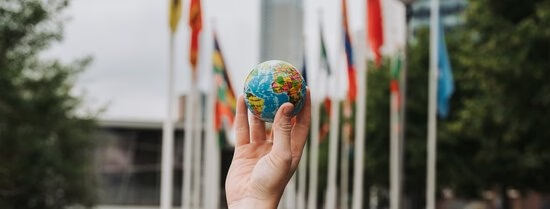Incoming exchange
Explore the Netherlands: come to Erasmus University Rotterdam
Outgoing exchange
Exchange during your time at Erasmus University Rotterdam
Discover our European University Alliance
Start your UNIC experience here
Are you eager to broaden your horizons, come into contact with different cultures and, simply, have a great time: consider going on an exchange abroad! Whether you are a student hoping to study at Erasmus University Rotterdam from another country, or a current student planning to go abroad, the possibilities are endless. Take your pick above: are you coming to Rotterdam, or going abroad?
One year before leaving
- Choose what you want to do (exchange/internship/summer school/volunteer work);
- Check your faculty’s website (for possibilities, conditions, recognition of study points, etc);
- Apply to the university (through your faculty) or company of your choice;
- Arrange your finances (make a budget, apply for grants, etc);
- Ensure you know the relevant language well enough (do you need to take a test?);
- Ensure you have all the required visas and permits (check Nuffic’s or the Ministry of Foreign Affairs’ websites).
Three months before leaving
- Apply to the university (if you have been nominated) or project abroad;
- Arrange banking abroad (for some countries it may be handy to bring along a credit card);
- Arrange housing (abroad and subletting your own room/flat/house);
- Arrange transportation;
- Conclude insurance;
- Check whether your vaccinations are correct/up-to-date;
- Appoint a representative;
- Check the validity of your driving licence;
- Check all DUO-related matters are in order;
- Undertake background reading.
During your studies, exchange is a once (or maybe twice) in a lifetime opportunity that will not open up again later in your life in the same way.
Being a student on exchange really lets you explore new cultures from a completely different perspective. You will meet lots of other exchange students from all over the world, make local friends and by the end of your exchange you maybe even have a home away from home. Our students recommend to just make sure you go on exchange and enjoy it to the fullest.
Most often you're able to go on exchange in the third year of your bachelor programme, but please:
- Students coming to EUR: check with the exchange coordinator of your home university
- EUR students going abroad: check with your faculty
They can provide you with more detailed information on this matter, as the exchange possibilities might differ per faculty and programme.
As a first step, always contact the exchange coordinator of your faculty to discuss the options and to start the application procedure.
- Students coming to EUR: check with the exchange coordinator of your home university.
- EUR students going abroad: check with your faculty.
No testimonials found.
